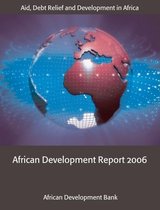Prosperity in Rural Africa? Insights into Wealth, Assets, and Poverty from Longitudinal Studies in Tanzania
Afbeeldingen
Sla de afbeeldingen overArtikel vergelijken
Uitgever: Oxford University Press
- Engels
- Hardcover
- 9780198865872
- 16 september 2021
- 464 pagina's
Oxford University Press
Oxford University Press had its origins in the information technology revolution of the late fifteenth century, which began with the invention of printing from movable type. The first book was printed in Oxford in 1478, only two years after Caxton set up the first printing press in England.
Despite this early start, the printing industry in Oxford developed in a somewhat haphazard fashion over the next century. It consisted of a number of short-lived private businesses, some patronized by the University. But in 1586 the University itself obtained a decree from the Star Chamber confirming its privilege to print books. This was further enhanced in the Great Charter secured by Archbishop Laud from King Charles I, which entitled the University to print 'all manner of books'.
The University established its right to print the King James Authorized Version of the Bible in the seventeenth century. This Bible Privilege formed the basis of a profitable business throughout the next two centuries and was the spur to OUP's expansion. A Bible warehouse was set up in London, which later grew into a major publisher of books with educational or cultural content aimed at the general reader. OUP then began to expand internationally, starting with the opening of an American office in 1896.
Oxford's traditions of religious and academic publication were followed in New York. The first book published by the American office was the Scofield Reference Bible in 1909. After it came The Life of Sir William Osler, which won the Pulitzer Prize in 1926. Six more Pulitzers, several National Book Awards, and over a dozen Bancroft Prizes in American history have followed since.
Since 1896, the business has changed considerably, with the growth and evolution of schools' publishing, particularly in the Branches; the introduction of English Language Teaching, Music, Journals, and Trade and General publishing; and the use of new technologies.
Samenvatting
Prosperity in Rural Africa? addresses questions related to tracking economic development in poor rural areas in the face of scarce data. The chapters collect insights and experience into the dynamics of rural societies in Tanzania, demonstrating that economic data can render development in these regions invisible.
How can we track change in poor rural areas where data are scarce? How do we know what general economic growth does to places which are considered rural backwaters? As poorer countries try to transform their economies, and as economies appear to be rebounding across Africa, what is that doing to the rural poor? Prosperity in Rural Africa? provides surprising and challenging answers to these questions. It brings together the expertise of a collection of researchers with decades of experience of working in Tanzania, all of whom faced a deceptively simple task: go back to your study sites, to the places you know well, and to the families you first visited and then describe, and try to explain, the changes that you see. The result is a fascinating compilation of insights and experience into the dynamics of rural societies in Tanzania, which highlights the importance of investment in assets for rural peoples and their success in doing so, largely through their endeavours in small-holder farming. Assets are centrally important to local definitions of wealth across the country. This matters a great deal because rural people's investment in assets is not counted when poverty lines are calculated. There are sound methodological reasons for this omission. But it means that when rural people invest in assets, then that growing prosperity is invisible in development data. This book shows what those data can miss. This is an open access title available under the terms of a CC BY-NC-ND 4.0 International licence. It is free to read at Oxford Scholarship Online and offered as a free PDF download from OUP and selected open access locations.
How can we track change in poor rural areas where data are scarce? How do we know what general economic growth does to places which are considered rural backwaters? As poorer countries try to transform their economies, and as economies appear to be rebounding across Africa, what is that doing to the rural poor? Prosperity in Rural Africa? provides surprising and challenging answers to these questions. It brings together the expertise of a collection of researchers with decades of experience of working in Tanzania, all of whom faced a deceptively simple task: go back to your study sites, to the places you know well, and to the families you first visited and then describe, and try to explain, the changes that you see. The result is a fascinating compilation of insights and experience into the dynamics of rural societies in Tanzania, which highlights the importance of investment in assets for rural peoples and their success in doing so, largely through their endeavours in small-holder farming. Assets are centrally important to local definitions of wealth across the country. This matters a great deal because rural people's investment in assets is not counted when poverty lines are calculated. There are sound methodological reasons for this omission. But it means that when rural people invest in assets, then that growing prosperity is invisible in development data. This book shows what those data can miss. This is an open access title available under the terms of a CC BY-NC-ND 4.0 International licence. It is free to read at Oxford Scholarship Online and offered as a free PDF download from OUP and selected open access locations.
Productspecificaties
Wij vonden geen specificaties voor jouw zoekopdracht '{SEARCH}'.
Inhoud
- Taal
- en
- Bindwijze
- Hardcover
- Oorspronkelijke releasedatum
- 16 september 2021
- Aantal pagina's
- 464
Betrokkenen
- Hoofdredacteur
- Dan Brockington
- Hoofduitgeverij
- Oxford University Press
Overige kenmerken
- Product breedte
- 165 mm
- Product hoogte
- 35 mm
- Product lengte
- 240 mm
- Studieboek
- Nee
- Verpakking breedte
- 165 mm
- Verpakking hoogte
- 35 mm
- Verpakking lengte
- 240 mm
- Verpakkingsgewicht
- 910 g
EAN
- EAN
- 9780198865872
Je vindt dit artikel in
- Categorieën
- Taal
- Engels
- Beschikbaarheid
- Leverbaar
- Boek, ebook of luisterboek?
- Boek
- Studieboek of algemeen
- Algemene boeken
Kies gewenste uitvoering
Bindwijze
: Hardcover
Prijsinformatie en bestellen
De prijs van dit product is 104 euro en 99 cent.
Uiterlijk 24 mei in huis
Verkoop door bol
- Prijs inclusief verzendkosten, verstuurd door bol
- Ophalen bij een bol afhaalpunt mogelijk
- 30 dagen bedenktijd en gratis retourneren
- Dag en nacht klantenservice
Rapporteer dit artikel
Je wilt melding doen van illegale inhoud over dit artikel:
- Ik wil melding doen als klant
- Ik wil melding doen als autoriteit of trusted flagger
- Ik wil melding doen als partner
- Ik wil melding doen als merkhouder
Geen klant, autoriteit, trusted flagger, merkhouder of partner? Gebruik dan onderstaande link om melding te doen.









